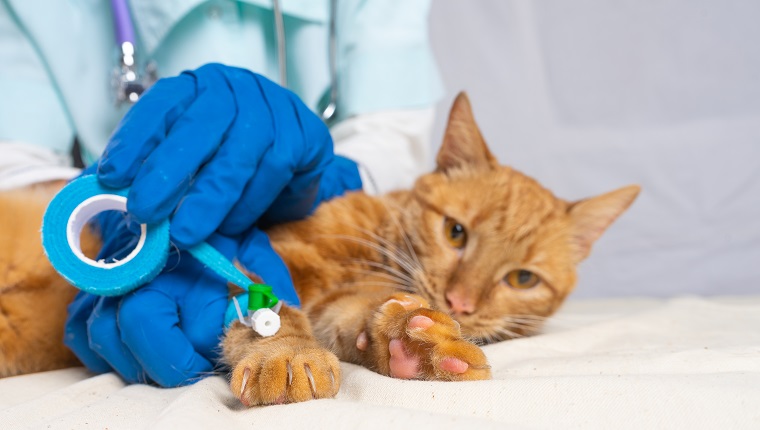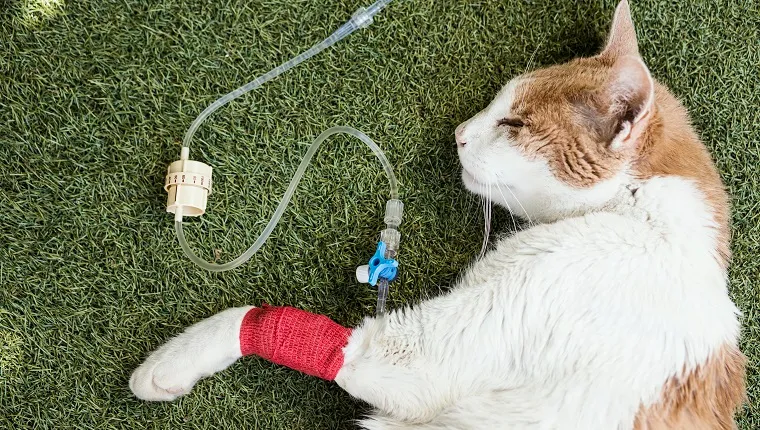Shock in cats is a state that comes about when a cat’s brain does not receive enough oxygen, often due to the slowing down of their circulatory system.
Some of the common causes include some sort of allergic reaction or suffering from a trauma.
As this can be a potentially fatal condition, it is vital that you consult your veterinarian straight away if you notice any of the symptoms setting in. Here’s what you should know about the symptoms, causes, and treatments for shock in cats.
Symptoms Of Shock In Cats
Shock in cats can produce a wide range of symptoms. Some of the most frequent symptoms include:
- Gums turning pale
- Hypothermia
- High heart rate
- Rapid and shallow breathing
- Acting disoriented
- Seizures
- Acting lethargic
Causes Of Shock In Cats

The most common cause of shock in cats is suffering from a trauma, such as being hit by a moving vehicle.
Some of the other frequent causes include:
- Allergic reaction
- Infection
- Losing too much blood
- Exposure to toxic substances
- Heat stroke
Treatments For Shock In Cats
If you worry that your cat is suffering from shock, consult with your vet straight away. This is because the condition can become fatal if not treated in time.
To diagnose a case, your vet will carry out a physical examination of your cat along with blood and urine tests. They may also use X-rays and ultrasound techniques.
When it comes to treatment, the vet will consider a number of techniques depending on the underlying cause of the condition. Some of the most common treatments include intravenous fluids, oxygen therapy, and methods to increase the heart rate.
In cases of a trauma or infection, vets might also recommend medication and antibiotics. As always, if your vet prescribes your cat any medication, it is vital that you stick to the precise dosage and frequency instructions and complete the full course of medication.
Has your cat ever suffered from shock? How did your vet help your cat recover? Let us know in the comments section below.









